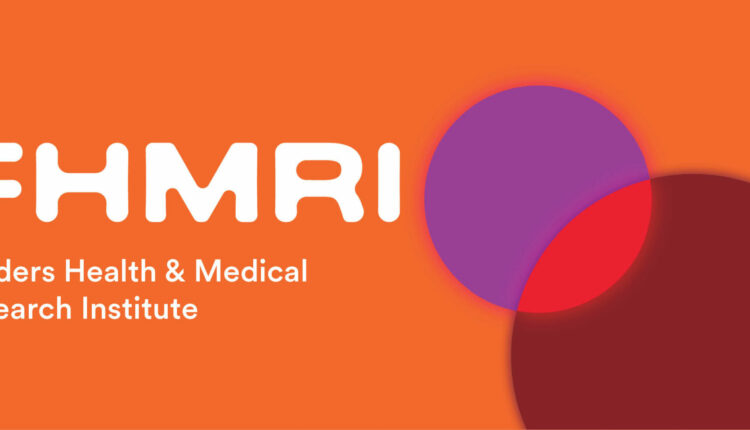Flinders University’s FHMRI Peeps To The Future Of Health And Medical Research
How will humanity tackle a future pandemic? What is the next life-changing healthcare breakthrough?
Scientists at Flinders Health and Medical Research Institute (FHMRI) are tackling these global health challenges, and many more, by taking advantage of the innovative research and contemporary thinking that FHMRI is known for.
In line with its international reputation as a leader in research, Flinders University has invested in a new $255 million Health and Medical Research Building (HMRB) currently under construction for completion in early 2024. The HMRB will house FHMRI and immediately become a leading biomedical research facility that will enhance Flinders’ capacity for life-changing research and a hub for translation of research into clinical outcomes.
In addition to the upcoming location in the new research building, FHMRI researchers are also positioned across the Australian central corridor footprint. Since the start of 2022, the number of researchers based in rural and remote areas of Australia has more than doubled, ensuring researchers, scientists, clinicians and policymakers undertake collaborative research focused on improving the health and wellbeing of individuals, families and the communities it serves.
Reflecting the outstanding growth in health and medical research undertaken by FHMRI scientists and the bright future that the new building promises for further growth, Flinders University has unveiled a new logo and rebrand for FHMRI. The reinvigorated brand reflects FHMRI’s ambitions as a game changer in the medicine, health and wellbeing sectors, building connections throughout industry to bring bold new ideas into practice.
The new logo takes inspiration from the light source under a microscope, with the glow effect bringing a contemporary and fluid aesthetic reflective of FHMRI’s vision of shining a light on vital health and medical research.
Flinders Health and Medical Research Institute Director Professor Peter Eastwood says the vibrant, yet edgy design signals FHMRI’s new era of growth and progress in bridging the gap between research and the world of practice, turning findings and developments into real-world solutions at speed.
“FHMRI is a world-class institute bringing skilled, innovative, accomplished researchers from around the world together as a powerful research community,” says Professor Eastwood.
“Our researchers are leading the way in undertaking vital research that is changing lives both locally and around the world, which is reflected in the vibrant and contemporary feel of the new logo and branding for FHMRI.”
“The new branding design allows us to bring focus to this life-saving research and the brilliant FHMRI researchers who are the true champions of research discoveries,” says Professor Eastwood.
“Much like our researchers, who work closely with those most impacted to come up with the health and medical solutions that our communities need, we have worked in consultation with our internal and external stakeholders to ensure that the final product represents the future of FHMRI.”
Flinders University Deputy Vice-Chancellor (Research) Professor Robert Saint says that FHMRI’s new brand and logo showcases that FHMRI is the home of leading international researchers who are addressing some of society’s most pressing health concerns.
“The Flinders Health and Medical Research Institute’s new logo reflects its status as an incubator of knowledge and a champion of change, and the home of innovative and life-changing health and medical research that continues to improve health outcomes around the globe,” says Professor Saint.
“Not only has FHMRI been at the forefront of impactful research breakthroughs, but it has been a major contributor to the spectacular research income growth that Flinders University has seen in recent years, with a doubling in four years to well over $100m in 2022,” says Professor Saint.
As a partner in the Flinders Health Precinct, FHMRI is co-located with the Flinders Medical Centre public hospital, Flinders Private Hospital and Flinders Centre for Innovation in Cancer. The close proximity of these clinical and research facilities allows FHMRI researchers to lead the way in developing and implementing the latest innovations in health care and health systems operations.
With priorities ranging from cancer, infection and inflammation, sleep, public health, eye health and neuroscience, to rural and remote health, and the priority needs of Aboriginal and Torres Strait Islander peoples, FHMRI is focused on making a difference to the health outcomes of people from South Australia to Northern Territory and beyond.

